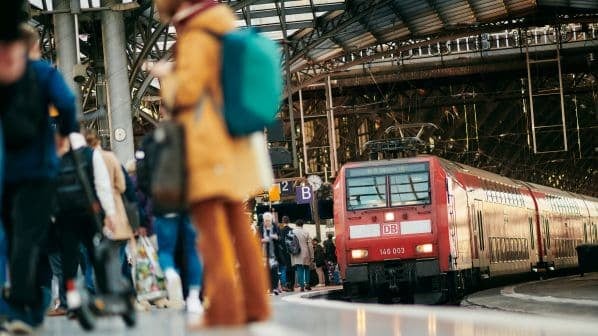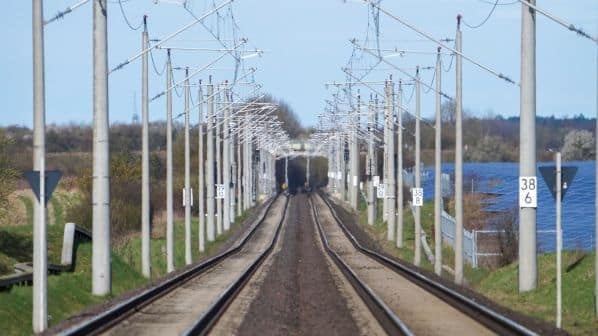GERMAN passenger and freight operators say proposed track access charge rises in 2025 and 2026 could result in substantial service cuts. German Rail (DB) and some private freight operators have slammed the planned increases, which they say are detrimental to modal shift.
In March, the Federal Transport Agency (BNetzA) approved new track access charges for 2025 as proposed by infrastructure manager DB InfraGO. These raise charges for long-distance passenger trains by 17.7% and for freight trains by 16.2%. However, due to a political decision to shield regional passenger services (and the public transport authorities and regional governments which fund them) from higher charges, the increase here will be just 0.6%.
Last month German media reported a leaked letter from DB to BNetzA that listed three inter-city routes which are in danger of losing all services if the planned increase goes ahead. The routes are:
- Norddeich Mole/ Münster - Dortmund - Siegen - Frankfurt
- Gera - Erfurt - Kassel - Cologne, and
- Karlsruhe - Stuttgart - Nuremberg - Leipzig.
Currently services on these routes run at least every two hours daily. Other services facing withdrawal are ICE trains to the Baltic coast outside the peak summer holiday period.
DB denies that such cuts are planned in 2025, while pointedly not confirming that the services are secure in 2026. It says: "There are currently no concrete plans to cancel the long-distance services mentioned”.
Some of the inter-city routes under threat are financed partly by regional governments, but most are not. It is possible that DB will seek financial support from regional governments, although in many cases previous tender conditions might preclude this, even if financial support is available.
Flawed methodology
According to industry lobby group the Network of European Railways (NEE), current plans require DB InfraGO to raise €6.7bn from track access charges in 2025, rising to €8.1bn in 2026 and with further increases in future years. NEE blames the methodology used by the German government to generate more funding for infrastructure investment.
It does so by increasing DB InfraGO’s capital with new capital injections. NEE points out that while the additional money is welcome, the fact that it bears interest (at a rate of 5.9%) means every capital injection adds to the amount of profit the supposedly “not for profit” DBInfraGO has to make. In late June DB received €3.02bn from the federal government, all of which was allocated to increase infrastructure funding via DB InfraGO.
The government has opted for this funding mechanism as the national “debt brake” policy limiting overall government debt means it generally cannot simply borrow money for rail infrastructure investment. However, the need to cover interest payments, along with increased depreciation charges and cost inflation in the construction and energy sectors, mean that NEE forecasts that charges for freight trains will rise from €2.87/km to €4.83/km in 2026. It describes the combination of DB InfraGO and BNetzA as a “hungry track access charge monster” driving up costs, which will lead customers to switch to road.
Modal shift under threat
Political support in Germany for policies that encourage modal shift of freight from road to rail appears to be waning across the board. The main opposition conservative Christian Democratic Union (CDU/CSU) party has recently said that road transport will remain the dominant mode in Germany, citing the Federal Transport Ministry’s own forecasts. Last month, the government proposed an additional €1bn of funding for the road network, using money taken from funds assigned to rail infrastructure.



